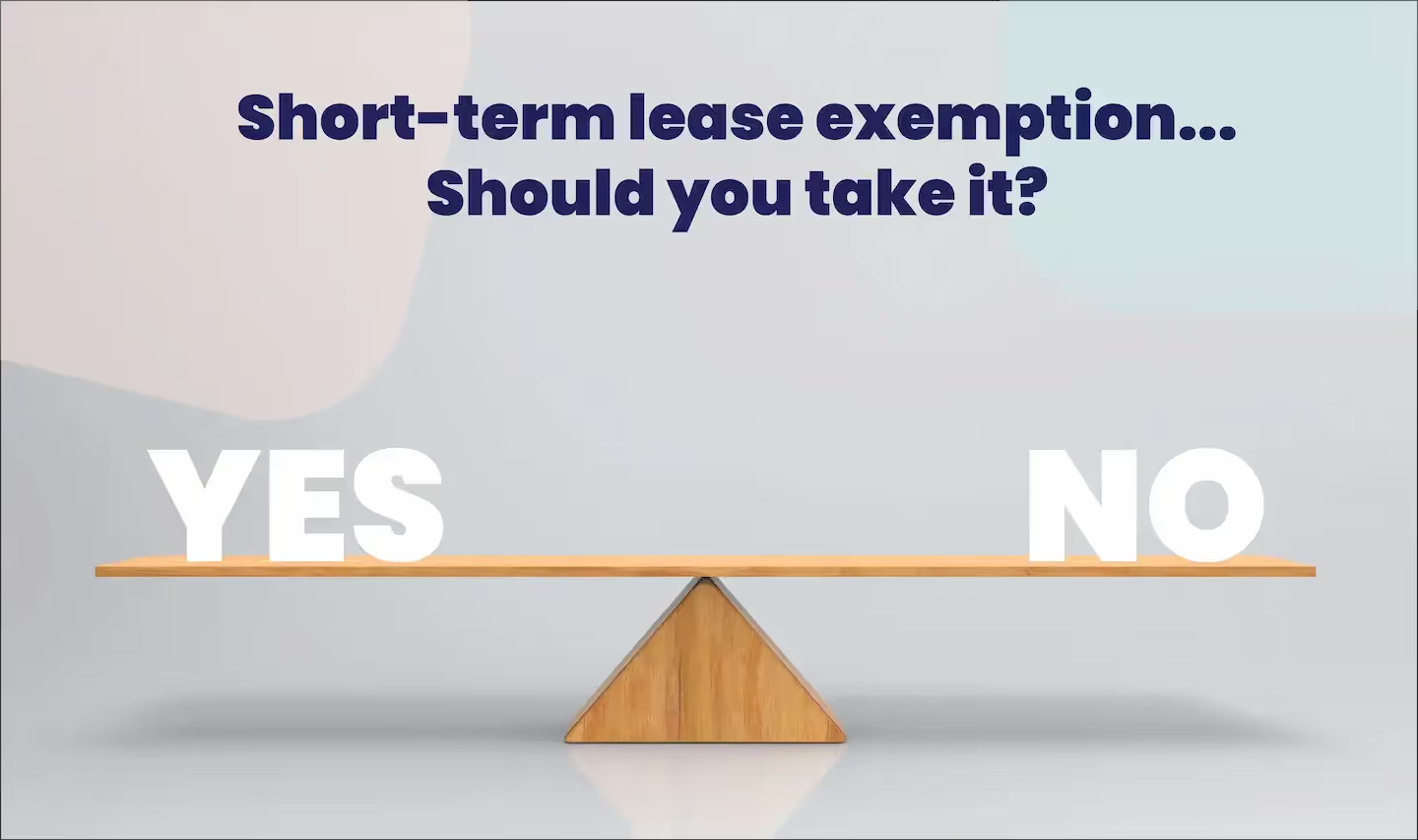With ASC 842 now applicable for both Public and Private companies, many accountants are trying to figure out how this standard is going to affect their company. At this point you have probably realized your leases will now have a balance sheet impact, but what about the practical expedients and exemptions you have been hearing about? In this article we are going to take a look at the Short-Term Lease Exemption and if you should elect to take it.
First, let’s determine what constitutes a short-term lease:
- The Lease Term is 12 months (365 days – hard line) or less
- There is no purchase option that will be exercised with reasonable certainty
To be clear, short-term leases are in scope for ASC 842. However, the accounting has been simplified. Think ASC 840 operating leases - we are going to recognize a straight-lined lease expense for our lease payments. If we decide to make this election, we must provide the required disclosures including a) we are electing to take this exemption, b) which classes of assets it applies, c) our lease expense for applicable leases, and d) our undiscounted short-term lease obligation (if it is significantly different from the previous annual report).
The most frequently asked question we receive is how short-term leases with a renewal option should be handled. ASC 842 addresses this specifically. If your renewal option(s) are individually 12 months or less and are not reasonably certain to be exercised, than you can preserve the short-term status. This holds even if you exercise your renewal option during the current lease term (resulting in a new expiration date that is more than 12 months away).
Another key item to consider. When you are determining the lease term, most lease are straightforward. Your office lease commences January 1, 2022, with an end date of December 31, 2023. The lease term is 24 months. But what if your lease has non-consecutive periods? You will need to calculate the days you are leasing the underlying asset. In a new example, let’s say we lease a movie theater 1 day per month for the next 2 years from the local cinema. In this case, even though the contract spans 2 years, the lease term is only 24 days and therefore does qualify for this exemption.
Should you elect to take this exemption? In typical accountant fashion… it depends. The benefit of this exemption is you lower your lease liability on your balance sheet. The challenge is you must have the correct systems, processes, and controls in place to ensure you properly classify and account for the short- term leases and provide the required disclosures mentioned above. We are finding in practice many companies are electing this exemption.

.avif)



.avif)